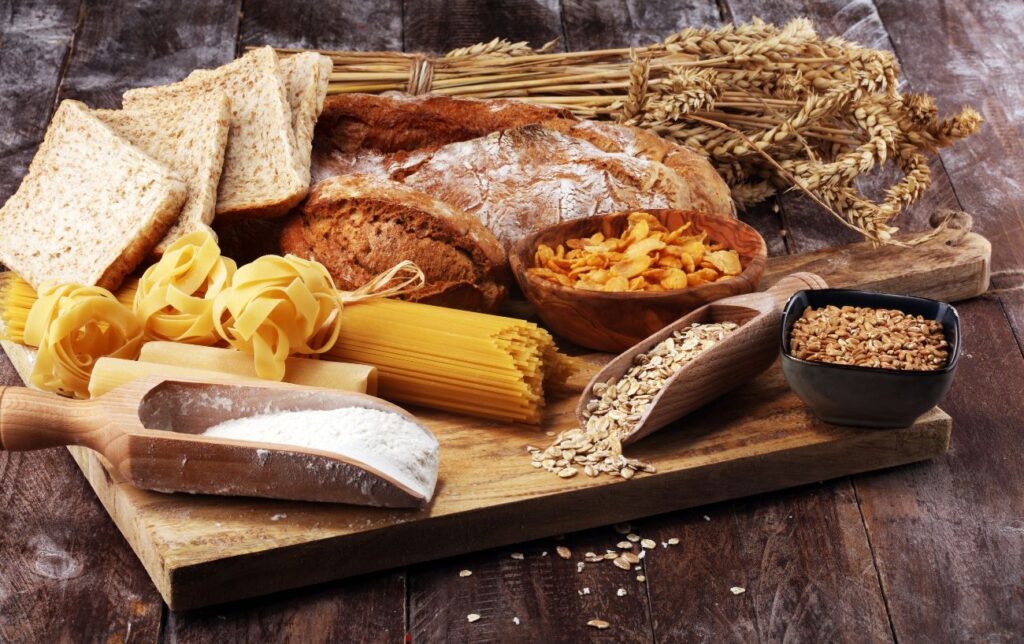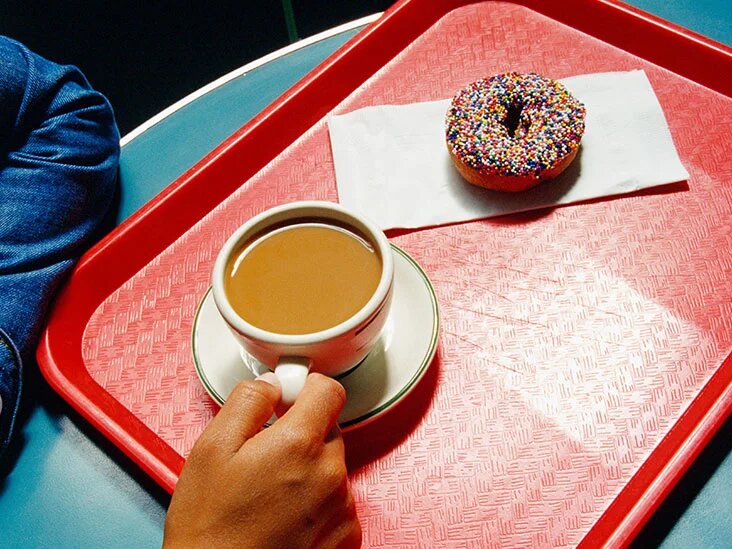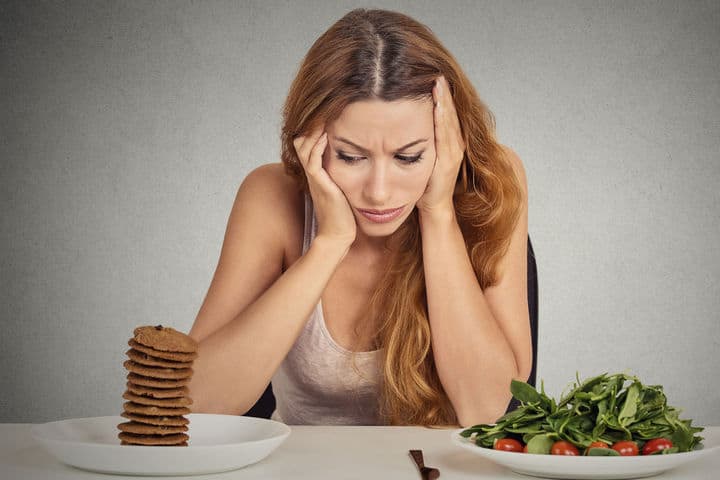A Quick Guide
Are you afraid to eat carbohydrates? Do you get anxiety after eating any carbohydrates? Well, you are not alone! As low-carb and ketogenic diets gain popularity, more and more people are becoming absolutely perplexed about consuming carbohydrates. These diets are not for everyone, even though they may be beneficial for some. One of the most crucial things you can do to maintain your physical health is to find a balance with carbs. After all, anxiety and nutrition are tightly related. Consuming the right amount of carbohydrates is also crucial for managing stress and depression. In this article, we will cover why you feel anxiety after eating certain foods, how carbs can trigger your stress response, and more importantly how to manage this anxiety.
What are Carbs?
Simple carbohydrates also referred to as simple sugar or refined carbohydrates, are present in processed foods including pastries, pizza, breakfast cereal, cakes, and cookies. You should try avoiding them as much as you can.

Most processed carbohydrates are produced from low-quality wheat which has been genetically altered, grown in substandard soil, and drenched in pesticides, then combined with refined sugars to make “foods” like a cake or a bagel. Refined carbs are derived from wheat, which is fine in a balanced, healthy diet for some people. The majority of sugars, trans fats, and processed grains are all considered neurotoxic refined carbohydrates. Refined carbohydrates may initially offer you a boost of energy, but this may be followed by an insulin rush that causes a sharp drop in blood sugar levels and leaves you feeling tired. Significant changes in blood sugar might immediately trigger an anxiety reaction in the body.
Understanding the body’s stress response
Let’s begin by getting a basic grasp of the body’s stress reaction. The hypothalamic-pituitary-adrenal (HPA) axis regulates the complex set of hormones and neurotransmitters that make up the stress response. The synthesis of stress hormones is controlled by the HPA axis, which links the neurological and endocrine systems.
The HPA axis is activated by both acute stressors, such as fleeing a life-threatening situation, and persistent stressors, such as worry and fear. Stress hormones and neurotransmitters including norepinephrine (noradrenaline), epinephrine (adrenaline), & cortisol are released as a result of this.
These neurotransmitters and hormones cause physiological alterations in the body known as the fight-or-flight response. Our heart rate, blood pressure, and pulse speed up during a fight-or-flight response to send more blood to the muscles, brain, and other essential organs. We can take in as much oxygen as we can to send to our brain and muscles by breathing more quickly and opening the airways in our lungs. To provide energy to our tissues, blood sugar (also known as glucose) and lipids also enter the bloodstream. As a result, when the stress reaction is triggered, our senses sharpen and we become more attentive.
We frequently aren’t even aware that these physiological changes are taking place since they happen so swiftly. This enables us to react to danger practically automatically. However, chronic, non-life-threatening factors like sleep deprivation, traffic, a demanding job, and even Instagram can also trigger the stress response. The stress response was designed to help us overcome life-threatening events.
The stress reaction is more detrimental than beneficial under certain circumstances. Anxiety, insulin resistance, type 2 diabetes, heart disease, autoimmune illness, weight gain, and other conditions can all be aggravated by long-term, low-grade stress.
Why do you feel Anxiety & Stress after eating Carbs?
So how do carbohydrates affect how the body reacts to stress? The primary fuel source for the body and the end product of the breakdown of carbs is glucose. The body puts in a lot of effort to keep blood glucose levels stable so that we have enough energy to support metabolism and maintain hormone balance.
The stress reaction is triggered when our blood sugar levels go too low; after all, hunger can be a potentially fatal condition. The stress reaction aids in releasing glucose from the muscles and liver, restoring normal blood sugar levels.
Therefore, eating too many processed carbohydrates and sweets might cause your blood sugar to fluctuate by generating a sharp rise followed by a sharp fall. This significant drop in blood sugar sets off the stress response, which causes the physiological signs of anxiety and, in some cases, even panic attacks. Because the body is less effective at obtaining energy from protein and fat than it is from carbohydrates, low-carb diets, particularly low-carb and low-fat diets, can also promote the stress response.
This explains why many people who follow low-carb diets experience muscle twitching and/or a weight loss plateau, especially women who naturally produce more cortisol than males. Because there is not enough glucose to support metabolic processes, the body produces more cortisol, which leads to anxiety after eating carbs.
Watch: [Carbs & Mood]
Symptoms of Anxiety After Eating Carbs
Numerous symptoms of anxiety exist, and each person’s combination of symptoms is different. There are, nevertheless, a few typical indications of anxiety after eating carbs:
- A hard time controlling feelings of worry
- Fast heartbeat
- Fatigue
- Feeling of choking
- Feeling of dread
- Insomnia
- Irritability
- Muscle tension
- Nausea
- Rapid breathing
- Shaking
- Sweating such as clammy hands
Other foods that can trigger your anxiety
There are a lot of things other than eating carbs that can contribute to your anxiety which we will be discussing ahead:
Alcohol
Unbelievably, the drink that is supposed to help with social anxiety instead makes it worse. Serotonin and other neurotransmitters in the brain are altered by alcohol, which aggravates anxiety. Additionally, you can feel even more uncomfortable after the alcohol wears off. As long as your doctor provides the all-clear, drinking in moderation roughly 1 drink for women and 2 for men is usually safe.
Caffeine

The National Coffee Association reports that 62 percent of Americans consume coffee every day, with an average consumption of just over 3 cups per person per day. But when it comes to anxiety, our typical morning routine might be having the opposite effect. Caffeine is typically harmless in small doses. However, large doses might have undesirable side effects, such as anxiety and jitters. According to the Food and Drug Administration (FDA), an average adult can typically consume up to 400 mg of caffeine per day without risk or side effects. Also keep in mind that many goods, including tea, chocolate, and several headache medications, contain caffeine, which can heighten anxiety.
Hidden sugar
Since sugar is included in many of the foods we enjoy eating, such as fruit, it is impossible to completely avoid it. However, extra sugar contributes to overall anxiety. In order to regulate blood sugar levels and help the body absorb extra glucose, insulin is released; however, a sugar rush makes the body work too hard to return to normal, resulting in highs and lows.
Consuming a lot of processed sugar might make you feel anxious, irritable, and depressed. You should think about avoiding or eliminating foods that include added sugar because they don’t all resemble desserts. A lot of added sugar can be found in condiments like ketchup, some salad dressings, spaghetti sauces, and morning cereal.
How do you handle it?
Even though you might not have to completely stop eating these things, keeping a food journal might help you spot any connections between their consumption and elevated anxiety. Pay attention to labels and the amount of sugar in any packaged meals you consume, especially when it comes to sugar. More often than you’d imagine, prepared foods like pasta sauce, flavored yogurt, and condiments are high in sugar.
You might find it particularly difficult to avoid sugar because recent research reveals a strong connection between anxiety and urges for sweet foods. Try naturally sweet fruits, such as dates, raisins, pineapple, or strawberries, the next time you have a sweet craving to satisfy it without the use of additional sugar. Moreover, you can also try the following tips:
- Improve your diet by including more fruits and vegetables, even frozen ones.
- Include additional foods rich in omega-3 fatty acids and probiotics.
- Instead of juice or soda, sip on water (plain or sparkling) or unsweetened herbal tea.
- Switch to whole grains from processed carbohydrates.
Food sensitivities, allergies, intolerances, and Anxiety
In the US, between 3 and 4% of adults and 5 to 8% of children suffer from food allergies. The risk of developing anxiety disorders is significantly increased among young people who have food allergies and sensitivities. One research of adolescents aged 10 to 16 found that individuals who had food allergies were much more likely to experience signs of generalized anxiety disorder, separation anxiety, and anorexia.
Research evidence for Anxiety in people with Food Allergies
Families in underprivileged areas might experience this more than others. Children from these areas who had food allergies showed more severe symptoms of social anxiety and general anxiety, according to a study. The study’s lead researcher said that dealing with food allergies can be costly because it requires buying groceries, preparing meals, and spending money on epinephrine auto-injectors, which have a yearly expiration date. They argued that those with limited financial resources would experience anxiety as a result of these pressures. Adults are also susceptible. In comparison to parents of children without food allergies, one study found that parents of children with food allergies experienced considerably higher levels of stress, anxiety, and depression. Long-term exposure to a perceived threat might cause anxiety. Among these indications are the following:
- Fast heart rate
- Feeling tingly or numb in your mouth
- Having trouble breathing
- Lightheadedness
- Nausea or stomach discomfort
- Swelling or tightness in your throat
These symptoms may not start to manifest for an hour or two after eating, but they can start to manifest very quickly. They frequently become active after exercise.
What to do?
Moreover, if you have a food allergy, the possibility of experiencing severe responses to food every time you eat exists. Minor anxiety may keep you awake: You always carry your epinephrine and read labels while purchasing food. However, persistent anxiety over food allergies can spiral out of hand. If so, anxiety can be controlled with the appropriate assistance, such as:
- Counseling
- Education
- Medication
- Nutritional guidance
- Support groups
Don’t be afraid to ask a doctor for tests and a diagnosis if you or your child need assistance. They’ll make sure you receive assistance in creating food plans that take any associated concerns into account.
Lapsing back into old eating habits
You might experience anxiety if you’re trying to change specific eating patterns or behaviors or you think about eating fewer carbs. Imagine that after 3 weeks of eliminating red meat, and refined carbs from your diet, you still crave a cheeseburger. You decide that one burger won’t ruin your long-term health goals, so you head to your favorite restaurant to get one. You suddenly feel irritated and anxious after eating and think, “I was doing so well.” “What if I start craving red meat constantly once more? What if I’m unable to abandon it this time? So then what do you do?
Here’s All You Need To Know About Disordered Eating Habits
What to do?
It’s fair to be concerned about the potential consequences of a mistake for future prospects, but try not to let this upset you. Remind yourself that it takes time to form new habits rather than being hard on yourself. Think about the improvements you’ve already made. Show yourself some compassion and self-love. There’s no reason to doubt your ability to succeed once again when you’ve previously had success for several weeks. Then, try taking a few slow, deep breaths to calm yourself; this is crucial for digestion and anxiety.
Read: 9 Strategies To Cope With Anxiety For A Balanced & Peaceful Mind
Outlook
Anxiety and nutrition are intimately associated. You will be more susceptible to the negative effects of processed carbs, sweets, and low-carbohydrate diets if you have anxiety or chronic stress. Additionally, you might be consuming other things like caffeine or alcohol that are contributing to your anxiety. To stabilize your blood sugar and reduce your stress reaction, try eating a moderate amount of whole food, and minimally processed carbohydrates with each meal.
We hope you found this article useful in learning more about why certain foods can trigger the stress response in our body, why you feel anxiety after eating carbs, and what you can do to manage the situation.
Learn about Sleep Related Eating Disorder: All You Need To Know
References
https://www.healthline.com/health/anxiety-after-eating#disordered-eating
https://www.healthline.com/health/mental-health/surprising-foods-trigger-anxiety#refined-carbs
https://www.theearthdiet.com/blog/refined-carbohydrates-and-why-they-cause-anxiety
https://www.calmclinic.com/anxiety/causes/after-eating
https://culinahealth.com/2020/10/23/nutrition-and-anxiety-carbs/



 Healing Your Inner Child: A Short Guide
Healing Your Inner Child: A Short Guide  What You Need to Know About Trauma & its effects
What You Need to Know About Trauma & its effects  Dealing with a Narcissistic Parent: Strategies and Support
Dealing with a Narcissistic Parent: Strategies and Support  Understanding the MBTI Personality Types
Understanding the MBTI Personality Types  Understanding the Big Five Personality Traits
Understanding the Big Five Personality Traits  Body Image: what it entails and how it affects you
Body Image: what it entails and how it affects you